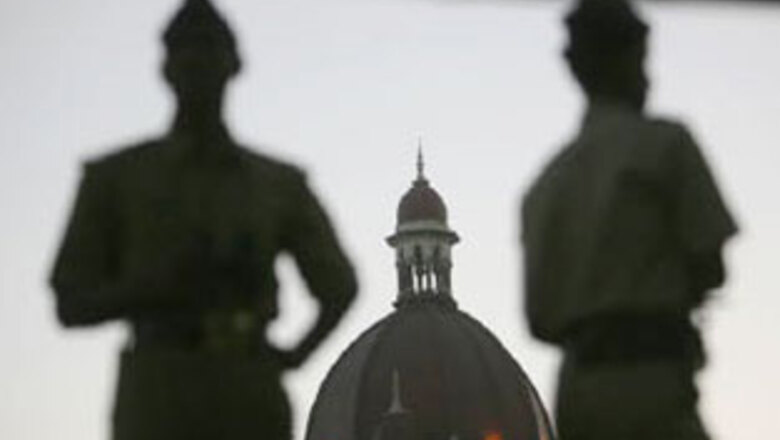
views
Washington: US cities are vulnerable to an attack like the gun-and-grenade assault that terrorised Mumbai for three days and killed 179 people, White House Homeland Security Adviser, Ken Wainstein said on Wednesday.
Wainstein told a Washington think tank the Mumbai attacks in November showed the effectiveness of a low-technology coordinated assault on an open city.
"You can envision that happening in any American city, and it's chilling when you think about it," Wainstein told policy-makers and others in a speech at the Washington Institute for Near East Policy.
"That's the kind of thing that is all too realistic anywhere in the world."
Wainstein's comments reflected a growing unease among international security officials that the Mumbai attacks may have established a new model for terrorism.
He spoke a day before government and local officials were to testify to US Congress on the Mumbai attacks.
The Senate Homeland Security Committee on Thursday will consider the response by Indian officials, and what is needed to prevent such an attack in the United States.
"We're going to go through where they screwed up, and how do we fix it - how do we make sure we don't make the same mistakes?" Committee Spokesman Seamus Hughes said.
The 10 attackers, who India say came from Pakistan, came ashore on speedboats and fanned out to locations such as hotels, taking and executing hostages and holding off security forces for days. They were armed with automatic rifles and grenades and carried global positioning equipment. '
PAGE_BREAK
"Response to a similar terrorist attack in a major US urban city would be difficult," the Homeland Security Department's Under-Secretary for Intelligence, Charles Allen, said in an advance copy of his Senate testimony.
Britain's spy chief, MI5 Director General Jonathan Evans, had also said in newspaper interviews published on Wednesday that the Mumbai attackers had broad international contacts.
"We have looked at individuals' communications, where they have been and so on and found they have got connections with most countries including the UK, but not of national security significance," London's Daily Telegraph quoted him as saying.
Wainstein declined to discuss whether there was any sign the attackers communicated with people in the United States. The attacks in Mumbai may spark more such raids by militants now that defenses are improving against suicide car-bomb attacks, the US State Department's Counter-Terrorism Coordinator, Dell Dailey said on Tuesday.
"This might open the door of awareness," he told reporters, as Evans made similar comments in London.
"The spectacularness of an on-foot attack will unfortunately ring true to other terrorist organizations," Dailey said.
Wainstein said early lessons from Mumbai underscored a need for facilities such as hotels to be told of intelligence on potential threats and to take them seriously. He said the public also must be made aware of such threats.
Allen said in his testimony that the chaos sown by the Mumbai attacks increased the difficulty of containing them. He said that since the September 11 attacks, US security officials across all levels of government had regularly exercised attack responses, which can help reduce the attackers' impact.




















Comments
0 comment